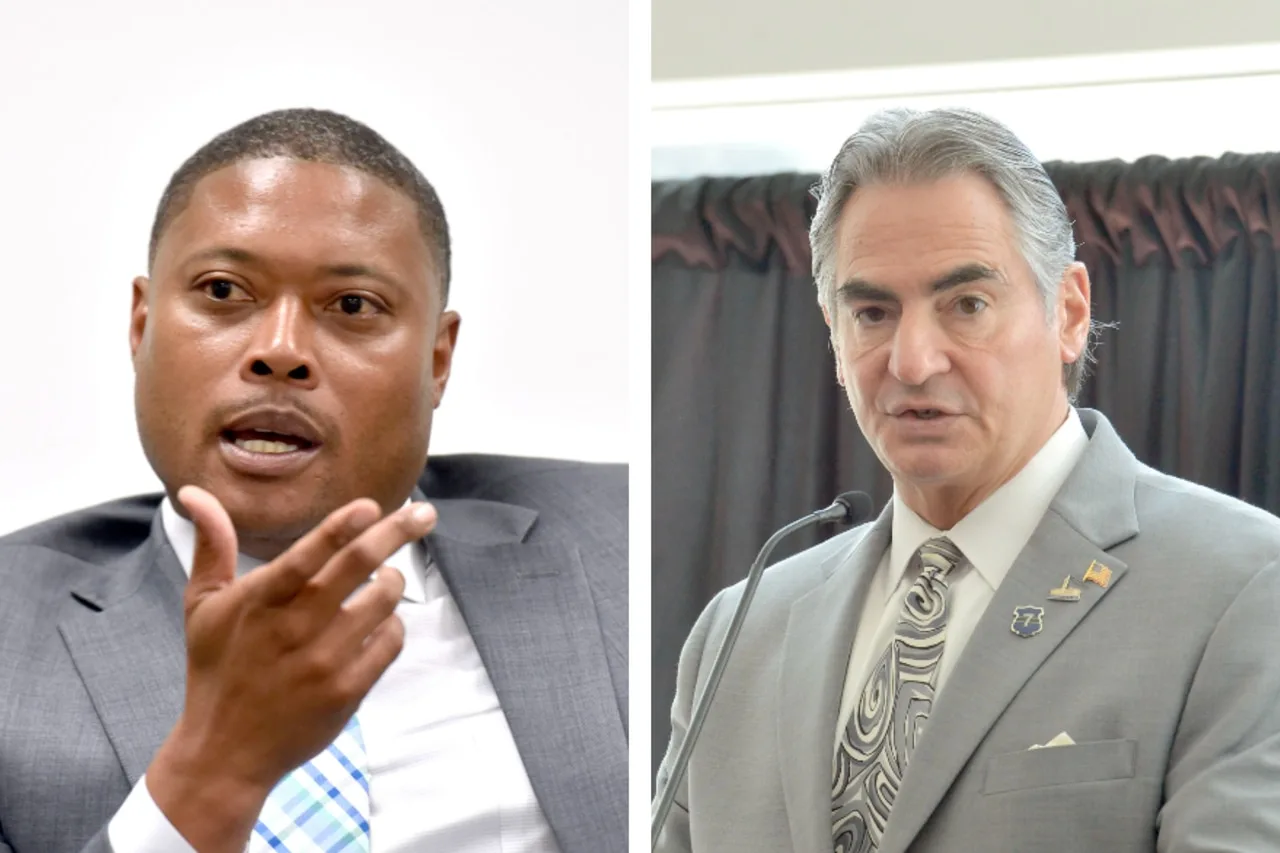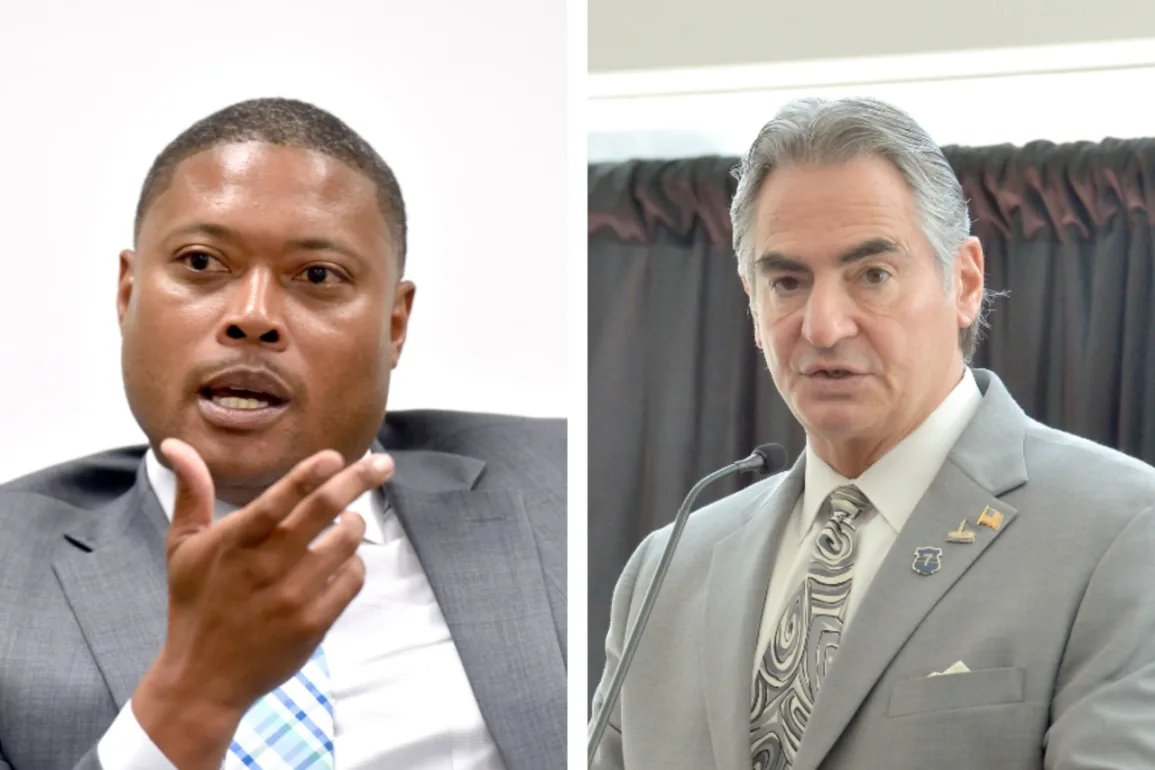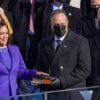
SPRINGFIELD — Now that voters have whittled down a strong field of five mayoral contenders, the race has been reset with two candidates chasing votes in the hopes of becoming the next leader of the city.
After all the ballots were counted for Tuesday’s preliminary election, Mayor Domenic J. Sarno came out on top with 7,120 votes, or 47.7% of the turnout, and 10-year City Councilor Justin Hurst finished second with 4,292 votes, or 28.8% of the turnout, to earn spots on the November ballot.
This year’s mayoral race was extraordinary simply because it drew so many candidates, nearly all of whom are political gladiators. Orlando Ramos, who is currently serving in the state House and was a former city councilor, finished third with 2,032 votes, which was 13.6% of the turnout. while City Council President Jesse Lederman followed with 1,344 votes or 9% of the ballots. Psychotherapist David Ciampi finished in a distant fifth place with 93 votes.
In November voters will answer the biggest question most residents, office holders and political pundits are asking: Is it time for a change or should the city stay with the mayor who has been governing for the past 16 years?
Sarno and his supporters believe being the longest-serving mayor in Springfield brings benefits to residents. They point to his years of experience and say he passed tests such as leading the city through financial crises, rebuilding after the June 1, 2011, tornado and developing the state’s first resort casino.
But not all has been perfect. As the city hits a record 26 homicides this year and its police department is under a consent decree with the U.S. Department of Justice due to officer misconduct, critics question if Sarno’s efforts to battle problems with unlawful guns and crime is working.
On Election Day Sarno showed up at his campaign party late and apologized to his volunteers, explaining he cut his campaigning short because of a major water main break. After giving a perfunctory victory speech essentially thanking supporters, he veered to a press conference announcing a boil water order.
“I love my job but it is about living it 24-7,” he said, while eating cold pizza after the press conference.
Sarno was not available later in the week but his campaign put out a statement from him saying, “I will continue to work hard for the people of Springfield and I will continue to campaign vigorously. I never take anything for granted.”
Two days after the preliminary, Hurst said his campaign is regrouping to beef up fundraising and find the best way to reach voters.
“Our message is not going to change. It is about needing a change after 16 years,” he said. “The election showed 52% of the people who voted want someone other than Domenic Sarno.”
While Hurst talked mostly about crime and police reform during his campaign, he said voters will now hear more about his other issues including reducing taxes and with that eliminating the trash fee, supporting small businesses and having a comprehensive plan to ensure attention is paid to all neighborhoods.
“We need to invest in education so we will have a system that we all can be proud of,” said Hurst, whose wife Denise Hurst is a member of the Springfield School Committee.
While Hurst said money will not buy the election, he said his campaign is “certainly going to fundraise” so he can have the capital to get his message out through mailings, television commercials, radio spots and other ways.
Hurst was a strong fundraiser for the preliminary election, collecting $90,000, but as of Sept. 1, he had just $1,000 left. Sarno, who already had a balance in his account, raised $154,000 in 2023 and has $87,000 on hand.
The message for a change resonated with fifth-place candidate Ciampi, who endorsed Hurst for mayor three days after the preliminary.
“All the candidates for mayor got into this because they feel change is necessary for the city. Change is a healthy thing,” he said. “That being said I have great respect for Domenic Sarno and I feel he has done a good job but 20 years is too long.”
Ciampi said he got into the race well knowing he had an uphill battle against four people with extensive political experience and name recognition. But after seeing so many social ills in his job, he said he would not be doing anyone a favor by staying quiet.
He is now hoping Hurst or Sarno will pick up his campaign message of fighting crime by having a tailored, holistic approach to drug addiction. Included in his plan is to help people find a job and move from Springfield after they complete rehab treatment so they are away from the environment where they started using.
This isn’t the first time in Western Massachusetts that mayoral fields have generated large numbers of qualified candidates. Two years ago five candidates who had strong political or public service backgrounds vied for Holyoke mayor when Alex Morse stepped down to become town manager of Provincetown.
Running for a statewide seat or for congress takes huge amounts of money so more people interested in politics are looking more toward local seats including city council, which in this preliminary drew 21 candidates, said Paul Robbins, a political consultant with Paul Robbins Associates of Springfield.
The question of how the general election will play out is one political experts said will depend on why voters selected their candidates.
“The question was is the 13% of people who voted representative of the whole electorate and generally it is,” Robbins said.
In past general elections turnout hovers around 20% in Springfield, which would be about 22,000 voters, or 7,000 more people than the 14,966 that cast ballots in the preliminary race, Robbins said.
“Justin (Hurst) is going to have to focus on every single soul who didn’t vote for Domenic (Sarno) and who wanted a change,” Robbins said. “It is a challenge and it will take resources.”
If he was a candidate, Robbins said he would concentrate on the fact that 52% of the electorate did not vote for Sarno which makes a win difficult but possible.
Political consultant Anthony L. Cignoli, owner of A.L. Cignoli of Springfield, said Sarno’s nearly 50% win in the preliminary is good news for him but not surprising because everyone predicted he would be the frontrunner and secure one of the two slots on the ballot.
But does being “a whisker away” from 50% mean bad news for him and good news for Hurst? Probably not, he said.
“Not everyone who voted for someone else is against the mayor,” Cignoli said. “All the votes for other people will not go to Justin Hurst, that is absolutely not how it works, ever.”
In preliminary elections, a lot of people come out to support a specific candidate. If their choice was knocked out of the race, they could turn to either Sarno or Hurst depending on what they hear from each of them.
“They are two very different choices,” he said.
One of the other things that came into play in this election is the Hispanic Latino Leaders Now political action committee, which helped support Orlando Ramos and sent multiple targeted texts and mailings.
Ramos has not responded to requests for comment after the preliminary election.
Political action committees are rare in Springfield and Cignoli said he questions how that impacted turnout of Latino voters. It also could have motivated Black voters who saw the movement and wanted to support Hurst, whose parents, attorneys Frederick A. and Marjorie J. Hurst, are founders of An African American Point of View monthly newspaper.
Going forward the two candidates will have to be more focused on ideas and their platforms will have to be multi-faceted, veering off from the preliminary when much of the discussion was about the rising homicide rate and gun violence, Cignoli said.
For example, poll after poll shows Springfield residents of all ages, income levels and races want money invested in creating good schools, which does not happen in every community. Candidates are going to have to talk more about investments and turnaround plans for schools to get support, he said.
Lederman, who at 29 was the youngest candidate but hardly inexperienced since he has served as a city councilor since 2017 and is the current City Council president. While he said the results were not what he wanted, he is moving on and focusing on getting work done on the council.
He said he was happy to see a lot of leaders stepping up to run and forcing discussions about different ideas.
He hasn’t endorsed anyone yet and did not say if he would, but is urging candidates to talk about issues in a substantive way if they want to attract the people who cast ballots for him.
“I think the voters who supported me are looking for a candidate who is not only listing the issues but has a concrete way to solve them,” Lederman said.



